 Just like the foot race marathon, you don’t get bragging rights until you actually do it. And, appropriately, this year’s Poetry Marathon took place during the summer Olympics. So while I was toiling away at my poetry prompts and posting poems to the official marathon blog, runners from around the world were competing for gold, silver and bronze medals in Rio.
Just like the foot race marathon, you don’t get bragging rights until you actually do it. And, appropriately, this year’s Poetry Marathon took place during the summer Olympics. So while I was toiling away at my poetry prompts and posting poems to the official marathon blog, runners from around the world were competing for gold, silver and bronze medals in Rio.
Unlike the Olympics, the Poetry Marathon is an annual event. I originally posted on it here, and the PM website offers a complete history and FAQ of the event. While I’ve known about the event for several years, this is the first year I participated. Luckily for me (and many others), the organizers have created a half marathon, which is what I completed. Both marathons start at 9:00am ET on writing day (Aug 13 this year), then every hour for 12 or 24 hours, participants are expected to write a poem and post it to the PM website. Each participant gets their own login on a group WordPress site, then as each participant publishes a poem, which is housed on their own blog space, it is also posted to the whole group blog. If you look at the site now, what you see are the poems posted by the participants as they came in.
If this sounds like a big commitment of a day, it is – or it can be. The organizers are flexible in letting participants commit to (on their honor) writing one poem every hour and then posting them when they can get to a computer. Some participants commented on having to go to work, so while they were writing the poems, they wouldn’t be posting them until later. Even for me, with a day “off,” I couldn’t be at the computer every hour of the day.
Bottom line: Was it fun? Was it engaging? Was it worthwhile? Yes, yes, and yes. Would I do it again? Absolutely. Until you do it, you don’t quite “get it.” Write a poem an hour? Anyone can do that on their own. But it was motivating (even a bit demanding) being in the community, committed to having to publish poems up to the website, having to be responsible every hour of the day. In fact, even while I was just sitting working at the computer, I almost missed one of the hours because I was so caught up in my work. I realized it with only five minutes left in the hour and scrambled to catch up! The pressure! It was wonderful. As were the prompts, which the organizers provide at the top of every hour. I admire those writers who had their own ideas for poems, but I relied heavily on the prompts to give me something to write about and get the writing done. There were many who did the same, and it was engaging to see the various interpretations of the prompts – a lot of really creative writers.
When it was done – 12 hours and 12 poems later – I felt a deep sense of pride and accomplishment. Not that I believe I wrote 12 astonishing poems that will shake the world. But because I wrote 12 poems in 12 hours as part of a community of people who were just as eager and committed as me. Surrounded for a whole day by an entire community of poets – reading, writing, commenting, and then doing it all over again, and again, and again. I think immersion is the right word.
I also learned that not everyone will be able to appreciate the experience if you try to share your joy at the accomplishment. “I just finished a poetry half marathon!” I exclaimed to my husband as I walked away from the computer at 9:00pm after just having posted my final poem. “Okay,” he said, not turning away from his laptop.
What you get out of it is definitely personal. Unlike the foot race, and unlike the Olympics, there aren’t throngs of people cheering your completion, no competitors there to hug you for a good race won. Though the organizers and participants do post encouraging comments for one another and have chat groups running to motivate one another, in the end, the sense of whatever it has meant to you will be completely up to you to generate and to own.
I thoroughly enjoyed the experience, I was challenged, I accomplished my goal, and I hope to be back to do it again next year.
Thank you Poetry Marathon! Congratulations to everyone who completed the half 12 hours of writing and the full 24 hours of writing. I get it: You are amazing!
[Applause]
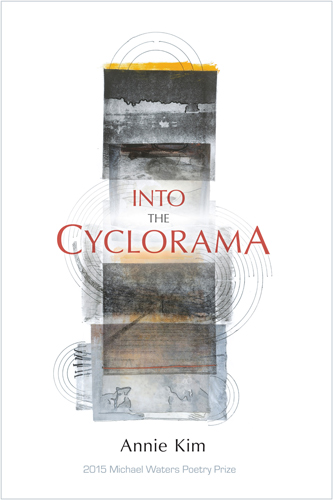 At the end of the year, find Annie Kim’s Into the Cyclorama, winner of Southern Indiana Review’s 2015 Michael Waters Poetry Prize.
At the end of the year, find Annie Kim’s Into the Cyclorama, winner of Southern Indiana Review’s 2015 Michael Waters Poetry Prize.
 If anyone needs more encouragement to subscribe to your favorite literary magazines, Rattle’s latest issue to subscribers serves as a reminder.
If anyone needs more encouragement to subscribe to your favorite literary magazines, Rattle’s latest issue to subscribers serves as a reminder.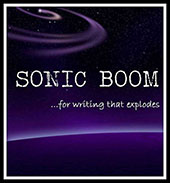 First Place
First Place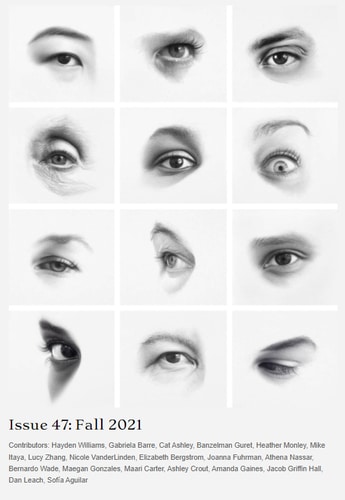 The newest issue of New Orleans Review is a special tribute to Shakespeare. According to Guest Editor Hillary Eklund, “The primary motivation for this issue is that 2016 marks the 400th anniversary of William Shakespeare’s death, and we wanted to commemorate that by looking at Shakespeare’s 21st century literary afterlives.”
The newest issue of New Orleans Review is a special tribute to Shakespeare. According to Guest Editor Hillary Eklund, “The primary motivation for this issue is that 2016 marks the 400th anniversary of William Shakespeare’s death, and we wanted to commemorate that by looking at Shakespeare’s 21st century literary afterlives.” Eklund herself is a scholar of early modern literature and Associate Professor of English at Loyola University New Orleans. She has published articles and chapters in Shakespeare Studies and in essay collections on early modern literature. Her book Literature and Moral Economy in the Early Atlantic: Elegant Sufficiencies came out in 2015 with Ashgate Press, and she has a collection of essays, Groundwork: English Renaissance Literature and Soil Science, forthcoming from Duquesne University Press.
Eklund herself is a scholar of early modern literature and Associate Professor of English at Loyola University New Orleans. She has published articles and chapters in Shakespeare Studies and in essay collections on early modern literature. Her book Literature and Moral Economy in the Early Atlantic: Elegant Sufficiencies came out in 2015 with Ashgate Press, and she has a collection of essays, Groundwork: English Renaissance Literature and Soil Science, forthcoming from Duquesne University Press.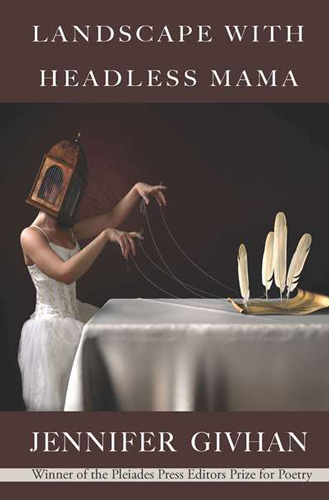 Forthcoming in October is Jennifer Givhan’s Landscape with Headless Mama, winner of the Pleiades Press Editors Prize for Poetry. The collection “explores the experiences of becoming and being a mother through the lens of dark fairy tales,” and is described by Givhan as “a surreal survival guide.”
Forthcoming in October is Jennifer Givhan’s Landscape with Headless Mama, winner of the Pleiades Press Editors Prize for Poetry. The collection “explores the experiences of becoming and being a mother through the lens of dark fairy tales,” and is described by Givhan as “a surreal survival guide.”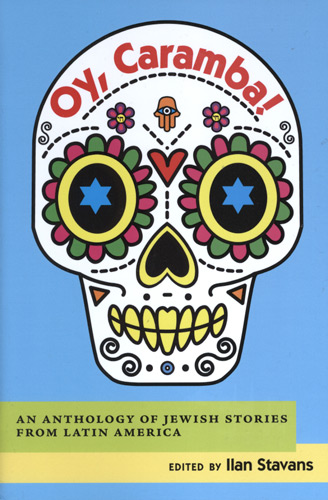 Who doesn’t appreciate a good play on words? The University of New Mexico Press has announced an anthology forthcoming in September, edited by Ilan Stavans, with a title that tickled my pun fancy.
Who doesn’t appreciate a good play on words? The University of New Mexico Press has announced an anthology forthcoming in September, edited by Ilan Stavans, with a title that tickled my pun fancy. 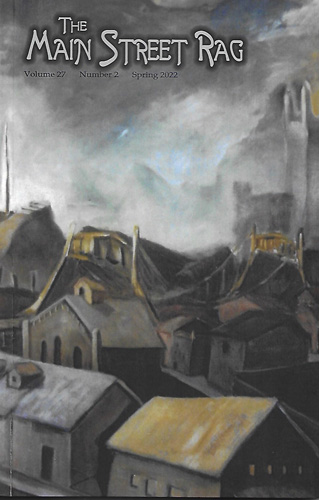 In his Welcome Readers Summer 2016 column, Editor M. Scott Douglass begins, “It may have gone unnoticed since we didn’t make a fuss about it, but The Main Street Rag recently experienced a milestone.” Having started in May of 1996, that milestone is 20 continuous years of publishing MSR, beginning as Main Street Rag Poetry Journal. “We’ve gone through many changes,” Douglass writes, “taken advice from notable people like Dana Gioia who advised me to diversify our content and broaden our audience. We did and it did. So did the workload.”
In his Welcome Readers Summer 2016 column, Editor M. Scott Douglass begins, “It may have gone unnoticed since we didn’t make a fuss about it, but The Main Street Rag recently experienced a milestone.” Having started in May of 1996, that milestone is 20 continuous years of publishing MSR, beginning as Main Street Rag Poetry Journal. “We’ve gone through many changes,” Douglass writes, “taken advice from notable people like Dana Gioia who advised me to diversify our content and broaden our audience. We did and it did. So did the workload.” The Summer 2016 issue of The Georgia Review includes a special feature on Coleman Barks. In addition to an introduction by Editor Stephen Corey, the section includes several poems and a prose piece by Barks. The prose, an essay titled “Figures from My Boyhood,” begins, “Steve Corey asked me to do a prose piece (on my influences, he suggested) for The Georgia Review. But I seem to have more energy for childhood obsessions. Sorry to be so self-absorbed.” Exactly what we would expect from Barks.
The Summer 2016 issue of The Georgia Review includes a special feature on Coleman Barks. In addition to an introduction by Editor Stephen Corey, the section includes several poems and a prose piece by Barks. The prose, an essay titled “Figures from My Boyhood,” begins, “Steve Corey asked me to do a prose piece (on my influences, he suggested) for The Georgia Review. But I seem to have more energy for childhood obsessions. Sorry to be so self-absorbed.” Exactly what we would expect from Barks.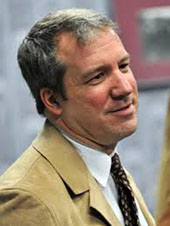 The Meadow 2016 Novella Prize winner is “The Spider” by Mark Brazaitis [pictured] and can be read both in the print issue as well as online. Brazaitis is the author of six books, including The Incurables: Stories, which won the 2012 Sullivan Prize in Short Fiction and the 2013 Devil’s Kitchen Reading Award. His latest book, Truth Poker: Stories, won the 2014 Autumn House Press Fiction Competition. The Meadow is the annual literary and arts journal of Truckee Meadows Community College in Reno, Nevada.
The Meadow 2016 Novella Prize winner is “The Spider” by Mark Brazaitis [pictured] and can be read both in the print issue as well as online. Brazaitis is the author of six books, including The Incurables: Stories, which won the 2012 Sullivan Prize in Short Fiction and the 2013 Devil’s Kitchen Reading Award. His latest book, Truth Poker: Stories, won the 2014 Autumn House Press Fiction Competition. The Meadow is the annual literary and arts journal of Truckee Meadows Community College in Reno, Nevada.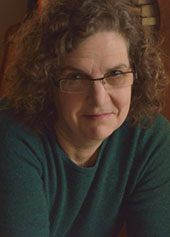 The Malahat Review #195 features Anne Marie Todkill’s story “Next of Kin,” winner of the 2016 Novella Prize. Todkill’s entry was chosen from 225 submissions by three final judges: Mark Anthony Jarman, Stephen Marche, and Joan Thomas. She has been awarded $1,500 in prize money and publication.
The Malahat Review #195 features Anne Marie Todkill’s story “Next of Kin,” winner of the 2016 Novella Prize. Todkill’s entry was chosen from 225 submissions by three final judges: Mark Anthony Jarman, Stephen Marche, and Joan Thomas. She has been awarded $1,500 in prize money and publication.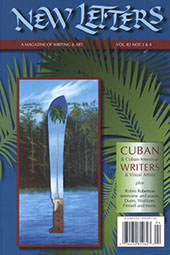 The newest issue of New Letters (v82 nos 3 & 4) includes a special section of Cuban & Cuban-American Writers & Artists co-edited with Mia Leonin, author of Braid (Anhinga Press) and Unraveling the Bed (Anhinga Press), and a memoir Havana and Other Missing Fathers (University of Arizona Press). Leonin currently teaches creative writing at University of Miami. The introductory note by Editor Robert Stewart reads:
The newest issue of New Letters (v82 nos 3 & 4) includes a special section of Cuban & Cuban-American Writers & Artists co-edited with Mia Leonin, author of Braid (Anhinga Press) and Unraveling the Bed (Anhinga Press), and a memoir Havana and Other Missing Fathers (University of Arizona Press). Leonin currently teaches creative writing at University of Miami. The introductory note by Editor Robert Stewart reads: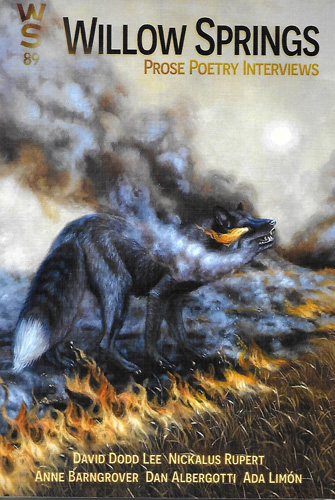 This year’s winner of the Willow Springs Fiction is “Gorilla Love Story” by Chelsea Bryant. The award provides each entrant with a one-year subscription to the publication; the winner receives $2000 + publication in the annual June issue. Willow Springs offers some of their publication’s content for online reading along with comments from the author about the work.
This year’s winner of the Willow Springs Fiction is “Gorilla Love Story” by Chelsea Bryant. The award provides each entrant with a one-year subscription to the publication; the winner receives $2000 + publication in the annual June issue. Willow Springs offers some of their publication’s content for online reading along with comments from the author about the work. Just like the foot race marathon, you don’t get bragging rights until you actually do it. And, appropriately, this year’s Poetry Marathon took place during the summer Olympics. So while I was toiling away at my poetry prompts and posting poems to the official marathon blog, runners from around the world were competing for gold, silver and bronze medals in Rio.
Just like the foot race marathon, you don’t get bragging rights until you actually do it. And, appropriately, this year’s Poetry Marathon took place during the summer Olympics. So while I was toiling away at my poetry prompts and posting poems to the official marathon blog, runners from around the world were competing for gold, silver and bronze medals in Rio. This week’s covers just say “summer” to me, starting with this Spring 2016 issue of River Teeth: A Journal of Nonfiction Narrative. The cover photo is of Chipmunk Creek, Richland County, OH by David FitzSimmons.
This week’s covers just say “summer” to me, starting with this Spring 2016 issue of River Teeth: A Journal of Nonfiction Narrative. The cover photo is of Chipmunk Creek, Richland County, OH by David FitzSimmons.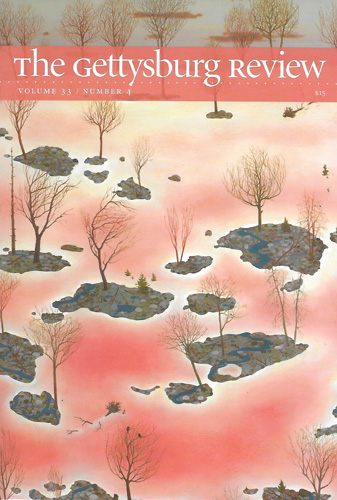 The Gettysburg Review Autumn 2016 issue features The Letter A, detail by Alexandra Tyng, 2012, oil on linen. The publication also includes a full-color portfolio of eight of his works.
The Gettysburg Review Autumn 2016 issue features The Letter A, detail by Alexandra Tyng, 2012, oil on linen. The publication also includes a full-color portfolio of eight of his works.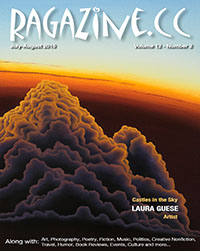 The online publication Ragazine features Castles in the Sky, oil on watercolor paper by Laura Guese, and also includes an interview with her in the issue here.
The online publication Ragazine features Castles in the Sky, oil on watercolor paper by Laura Guese, and also includes an interview with her in the issue here.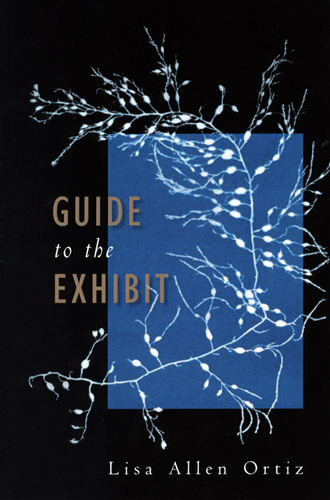 Lisa Allen Oritz took home the Perugia Press Prize for a first or second book by a woman (now open for 2017 submissions) in 2016 with the poetry collection Guide to the Exhibit.
Lisa Allen Oritz took home the Perugia Press Prize for a first or second book by a woman (now open for 2017 submissions) in 2016 with the poetry collection Guide to the Exhibit. 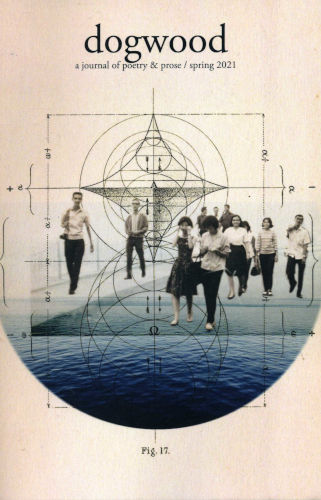 The newest issue of Dogwood: A Journal of Poetry and Prose (Volume 15: 2016) contains nothing but the winners and runners up of their annual literary contest for 2016. Unique to this contest, once genre winners are selected for fiction, poetry, and non-fiction, one author is awarded the Grand Prize overall with $1000 award.
The newest issue of Dogwood: A Journal of Poetry and Prose (Volume 15: 2016) contains nothing but the winners and runners up of their annual literary contest for 2016. Unique to this contest, once genre winners are selected for fiction, poetry, and non-fiction, one author is awarded the Grand Prize overall with $1000 award.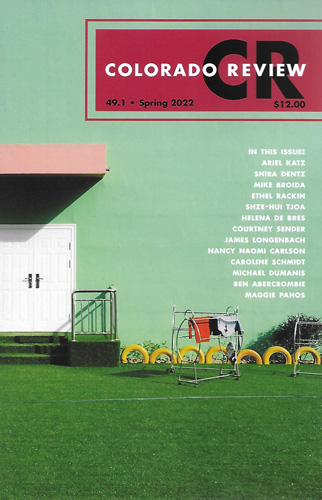 Irresistable: Colorado Review‘s Summer 2016 cover image is just so summery with this full-cover-wrap photogray by Lenny Koh of Lenny K Photography.
Irresistable: Colorado Review‘s Summer 2016 cover image is just so summery with this full-cover-wrap photogray by Lenny Koh of Lenny K Photography.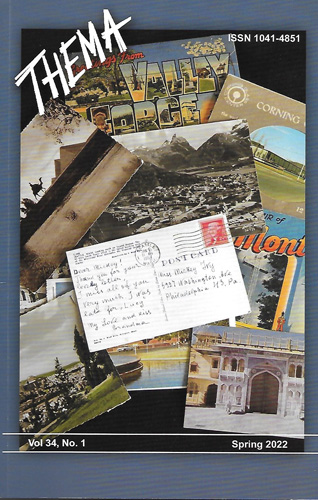 Thema‘s Summer 2016 cover is reflective of this issue’s theme: “Lost in the Zoo.” Cover photograph by Kathleen Gunton.
Thema‘s Summer 2016 cover is reflective of this issue’s theme: “Lost in the Zoo.” Cover photograph by Kathleen Gunton. Along with Cimarron Review‘s Spring 2016 issue, I almost had a whole cat theme going. This one taps my appreciation for whimsy with Sabrina Barnett’s photo “Greens (2).”
Along with Cimarron Review‘s Spring 2016 issue, I almost had a whole cat theme going. This one taps my appreciation for whimsy with Sabrina Barnett’s photo “Greens (2).”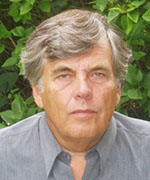 Valley Voices Spring 2015 is a special issue on Michael Anania, guest edited by Michael Antonucci and Garin Cycholl, who write, “Anania’s space is the river, the imagined city – a Chicago of relentless modernity, one capable of reinventing itself and making itself for sale again and again as the waters rise and fall. From here, the poet observes and reflects on this Chicago on the make – a sprawl of fresh water and wind, candy and steel.”
Valley Voices Spring 2015 is a special issue on Michael Anania, guest edited by Michael Antonucci and Garin Cycholl, who write, “Anania’s space is the river, the imagined city – a Chicago of relentless modernity, one capable of reinventing itself and making itself for sale again and again as the waters rise and fall. From here, the poet observes and reflects on this Chicago on the make – a sprawl of fresh water and wind, candy and steel.”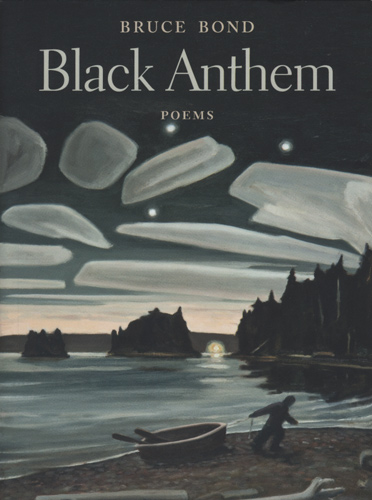 Winner of the 2014 Tampa Review Prize for Poetry, Bruce Bond’s Black Anthem, was published this month. The sonnets in the collection are “wide-ranging in their investigations of the body, the psyche, metaphysical hunger, and its place in human conflict.” Black Anthem is available from the University of Tampa Press website in hardcover and paperback.
Winner of the 2014 Tampa Review Prize for Poetry, Bruce Bond’s Black Anthem, was published this month. The sonnets in the collection are “wide-ranging in their investigations of the body, the psyche, metaphysical hunger, and its place in human conflict.” Black Anthem is available from the University of Tampa Press website in hardcover and paperback.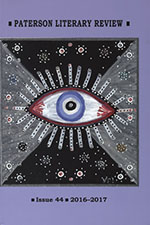 First Prize
First Prize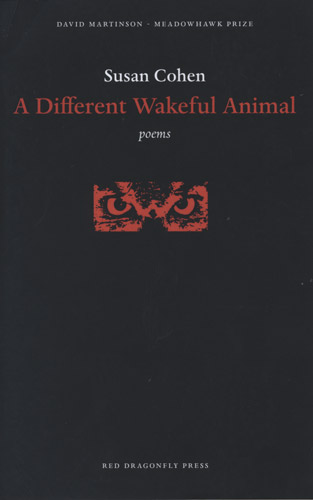 In June, A Different Wakeful Animal by Susan Cohen was published by Red Dragonfly Press. Winner of the 2015 David Martinson – Meadowhawk Prize, A Different Wakeful Animal “takes on the profound questions in language that catches the ear and the imagination. [ . . . ] A Different Wakeful Animal investigates what perishes and what might remain.”
In June, A Different Wakeful Animal by Susan Cohen was published by Red Dragonfly Press. Winner of the 2015 David Martinson – Meadowhawk Prize, A Different Wakeful Animal “takes on the profound questions in language that catches the ear and the imagination. [ . . . ] A Different Wakeful Animal investigates what perishes and what might remain.”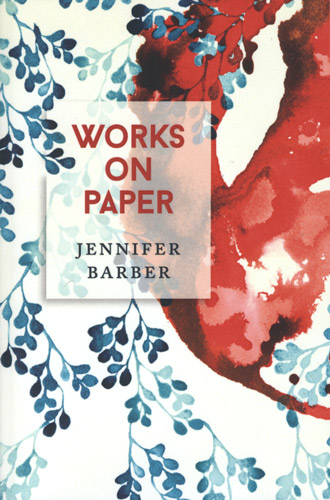 Looking back to May, Jennifer Barber’s Works on Paper was published by The Word Works. Winner of the 2015 Word Works Tenth Gate Prize. Her third poetry collection, Works on Paper “shows us the power of lyric restraint in the hands of a poet who draws from the well of the small moments of motherhood as well as the sweep of Jewish history.” This year’s Tenth Gate Prize just closed earlier in the month, with results announced on October 1st.
Looking back to May, Jennifer Barber’s Works on Paper was published by The Word Works. Winner of the 2015 Word Works Tenth Gate Prize. Her third poetry collection, Works on Paper “shows us the power of lyric restraint in the hands of a poet who draws from the well of the small moments of motherhood as well as the sweep of Jewish history.” This year’s Tenth Gate Prize just closed earlier in the month, with results announced on October 1st.